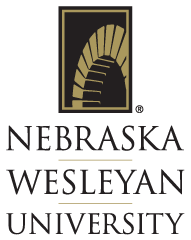Forensic Science
Majors, Minors & Degrees:
Minors
Master of Forensic Science (MFS) and Master of Science in Forensic Science (MSFS)
The MFS degree and MSFS degree prepare students to be leaders in the field of forensic science as law enforcement professionals, crime scene investigators, or forensic laboratory specialists. The MSFS program is accredited by the Forensic Education Program Accreditation Commission (FEPAC).
Admissions Prerequisites
To be considered for admission to the Forensic Science Master degree programs, students must meet admission requirements outlined on the Forensic Science Program pages.
Track-Specific Prerequisites
Students also must have completed track-specific prerequisites to specialize in one of the three program tracks:
- Behavioral Science (MFS)
- Investigative Science (MFS)
- Forensic Biology/Chemistry (MSFS)
The Nebraska Wesleyan Graduate Forensic Science Program does not currently qualify international students for a student visa into the United States. Approval is pending for the 2014 program.
See application page for transfer of credit policy, class schedule, and application information.
Undergraduate Opportunities
The Forensic Science Pre-professional Program offers current NWU undergraduates an opportunity to apply to the Forensic Science Program during their junior year. Accepted pre-professional students can begin taking graduate courses while completing their undergraduate coursework. Relevant credits will apply to both degrees. This approach allows students to earn a bachelor’s degree in their chosen discipline and a master’s degree in forensic science within roughly five and a half years.
NWU also offers an undergraduate minor in forensic science. The 19-credit minor is available to all students and isn’t a prerequisite for entrance into Nebraska Wesleyan’s graduate program in forensic science. Completing a forensic science minor does not guarantee a student’s admittance into the graduate program.
Forensic Science Seminars
Nebraska Wesleyan University also offers the opportunity to learn about the latest developments in forensic science conveniently and affordably.
The Forensic Science Seminars help prepare students to be leaders in the field of forensic science as law enforcement professionals, crime scene investigators, or forensic laboratory specialists. Courses provide college credit. Recent seminars have covered these topics:
- Firearm evidence analysis
- Interviewing
- Fire scene investigations
- Crime scene imaging
- Expert witness testimony
- Forensic linguistics
See Forensic Science Seminars page or for additional information, contact Denise L. Polson at dpolson@nebrwesleyan.edu or 402.465.2329.
